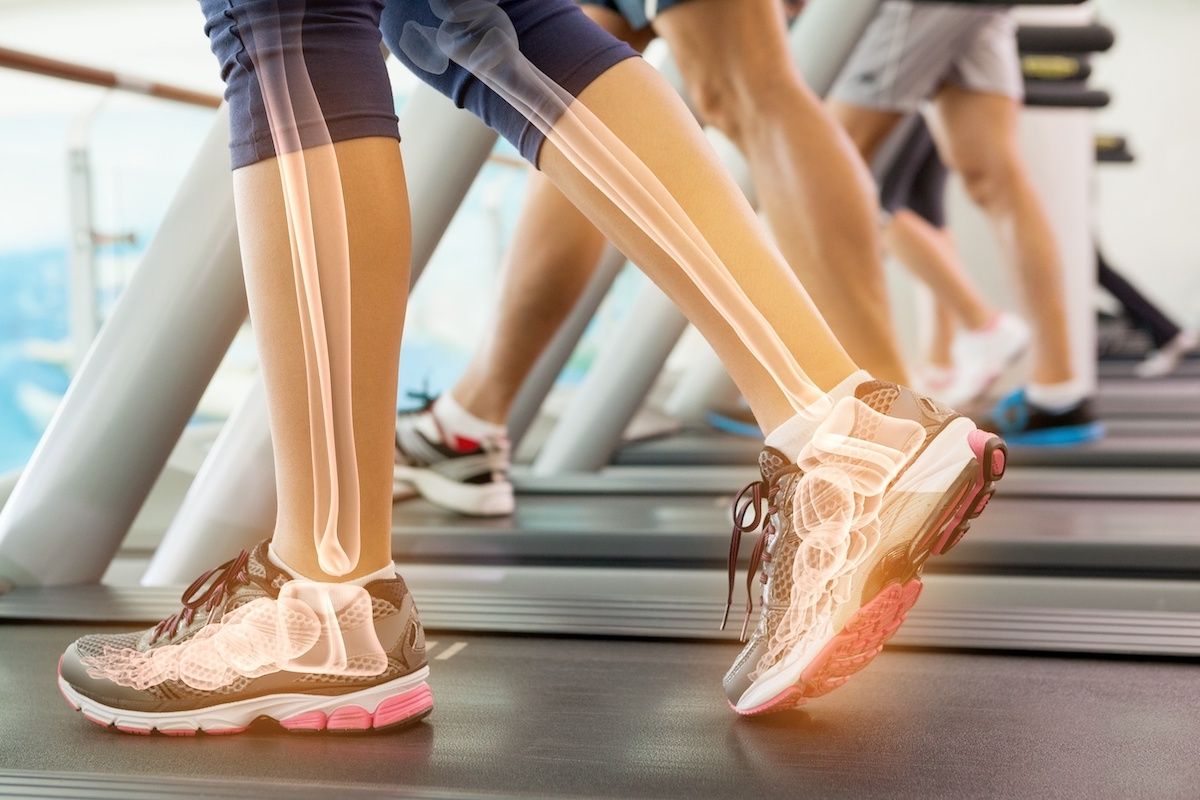Cancer and treatments like chemotherapy and radiation therapy can weaken your bones
The bones that form your skeleton have many functions. In addition to supporting your body and your ability to move, your bones protect your internal organs and store triglycerides and minerals such as calcium, phosphate and magnesium. Your bones (specifically the internal spongy tissue called red marrow) are mini factories, producing the stem cells that develop into your body’s blood cells.
Bone is a living tissue that continually builds new bone and breaks down old bone, a process called remodeling. Over about 10 years, remodeling replaces most of our skeleton. Bone health and strength are affected by many factors, including aging, genes, environment, personal habits (diet, exercise, smoking), hormones, calcium and phosphorus levels, nutritional deficiencies, disease, and certain drugs and cancer treatments.
If you are at risk for weakened bones, due to your cancer diagnosis, your treatments, or other risk factors, your doctor will recommend a bone mineral density (BMD) test to measure your bone strength. A lower-than-normal bone density may indicate you have an increased risk for fracture due to:
- Osteopenia, a condition of low bone density that may cause bones to thin or weaken slightly, or
- Osteoporosis, a disease that causes severe loss of bone mass and puts the person at high risk for bone fracture.
Am I at risk for weakened bones?
The more risk factors you have, the more likely you are to develop osteoporosis. Being female is a risk factor. People who’ve entered menopause have an even higher risk. And if menopause occurred suddenly — due to surgery or chemotherapy — the risk increases again. Having prostate cancer or taking androgen deprivation therapy also increases the risk of osteoporosis. Risk factors for osteoporosis include:
- Female gender at birth
- People who have entered menopause
- Experiencing menopause abruptly due to surgery, chemotherapy or other medications
- Cancer diagnosis, particularly breast cancer, prostate cancer, multiple myeloma, or any cancer that has spread to your bones
- Androgen deprivation therapy
- Chemotherapy
- Radiation therapy
- Family history of osteoporosis or broken bones
- A small, thin body frame
- Excessive alcohol intake (More than one drink/day for women; more than two drinks/day for men)
- Poor diet (particularly not enough calcium and vitamin D in your diet)
- Lack of physical activity
- Diabetes and/or rheumatoid arthritis
- Steroid medications (prednisone, dexamethasone), protein pump inhibitors, ulcer or GERD medication (omeprazole, lansoprazole, pantoprazole), anti-seizure medication (phenytoin), antacids that contain aluminum (Gaviscon®, Mylanta®), barbiturates, or thyroid hormones
Never miss another Cancer Talk blog!
Sign up to receive our monthly Cancer Talk e-newsletter.
Sign up!Treatments to strengthen bones
If a bone density test shows weakening of your bones, your doctor may prescribe a bisphosphonate medication. These may be taken by mouth or given by injection or IV infusion. Bisphosphonates slow or stop the natural process that dissolves bone tissue. As a result, your bone density and strength is maintained or increased. Current bisphosphonates include:
- Fosamax® (alendronate) taken by mouth
- Actonel ® (risendronate) taken by mouth
- Boniva® (ibandronate) taken by mouth
- Didronel® (etidronate) taken by mouth
- Aredia® (pamidronate) infusion (slowly injected into vein over 2 – 24 hours)
- Reclast® (zolendronate/zoledronic acid) injected into a vein over 15 minutes or more
Preventing bone loss
You can take steps to maintain bone health and help prevent osteopenia and osteoporosis.
- Take recommended daily amounts of calcium and Vitamin D (See below.)
- Do weight-bearing and muscle strengthening exercises regularly
- Stop smoking and avoid excessive alcohol
- Talk to your healthcare provider about further ways to protect your bone health
- Undergo a bone density test and take medication if prescribed by your doctor
Getting enough calcium and vitamin D
Remember, your body needs vitamin D to absorb calcium! These are general guidelines; ask your doctor if your needs are different. Daily recommendations of calcium and vitamin D (you don’t have to take them together):
- Calcium: 1000 mg/day under age 50, 1200 mg/day over age 50. Take in divided doses (no more than 600 mg at once). Available as calcium carbonate (take with food) and calcium citrate (use this form if you take medication to reduce stomach acid)
- Vitamin D: 800 to 1,000 units per day
Foods with calcium and vitamin D include: dairy products, dark greens (spinach, kale, okra, collards), some fish (salmon, sardines, perch), eggs, soybeans, white beans and calcium-fortified foods (OJ, oatmeal, cereal)
Calcium and vitamin D supplements (if needed) inlcude: Caltrate 600+D, NatureMade Calcium 600 mg with Vitamin D3, Citracal Petites, Kirkland Adult Calcium Gummies, TheraCal (for bone health)


